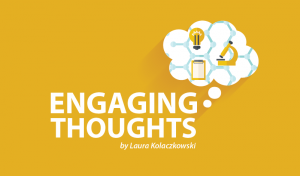Hospitality Care Service for Clinical Trial Participants
Written by |


This idea is so simple. But it has been overlooked for years until the partners of Gray Consulting, a Philadelphia firm, connected the dots and developed a better way to engage and retain people in clinical trials. Scott Gray, CEO, took time out to speak with me about Clincierge, a name blended from the words clinical and concierge, a unique business in its infancy that combines the best of the hospitality and travel business by making sure the patients in clinical trials take on no unnecessary burdens by participating. I learned of Clincierge just recently. Its website touts:
“Where hospitality meets science to improve clinical trial management.”
“Clincierge provides unique, customizable services aimed at overcoming barriers to patient participation in clinical studies. Our goal is to aid drug developers in reducing overall clinical testing time and cost, thus helping to get new treatments to the market – and to patients who need them – as swiftly as possible.
We reduce the anxiety and expense of trial participation for patients and caregivers, making it easier for them to join and remain in your study.”
I was particularly interested in its services because barriers to clinical trial participation is a significant problem in research. We know these barriers can include scheduling demands, travel difficulties, language differences ,and reimbursement for costs associated with participating in a clinical trial. These have been well-documented over the last 20 years or more.
To learn more about these barriers, you can reference an excellent summary at Clinical Trials Recruitment and Enrollment: Attitudes, Barriers, and Motivating Factors. I was more than a little curious as to how Clincierge began, how well it has been received in the pharmaceutical industry, and its success in engaging patients.
Gray Consulting began in 1994 as a corporate meeting planning company, and found a specialty niche in the pharmaceutical world, where it “Focused on hospitality – the ‘people’ logistics of travel, housing, ground transportation and conferencing needs,” Gray said.
It was after one of those meetings with a pharmaceutical company that Scott said the idea to use company knowledge to form this service took shape. The challenge to provide a service to take care of the needs of patients participating in clinical trials fit well with their existing philosophy to make everyone “feel welcomed as guests in our home,” Gray said.
In January 2014, the company worked with its first group of patients and caregivers, who had to travel from assorted locations in Europe to a clinical trial site in London. Gray said, “We took a good year to figure it out. These were patients with a rare disease, there were language barriers, and most had not traveled or had limited travel experience. We were asked to figure a method to make this happen.
“Our clients began to report to us that patients weren’t dropping out, patients were getting their treatments, trials were running faster with fewer complications,” Gray said.
“We took what we know about hospitality and applied it to the patients. We would hear from them things that emphasized the importance on making each person’s needs a priority, like ‘the car showed up to take us to the airport and the driver knew our names. Or, I don’t speak English and you provided a translator for me,’” Gray said, explaining the traditional model often requires patients to do much of this on their own and wait for reimbursements, or struggle on their own in the foreign territory of clinical trials.
“We’re stunned that it wasn’t done like this before, or very little of it. We are able to prepay almost everything for the patient, we can purchase meal packages for them, and even provide a debit card preloaded with money for incidental expenses,” he said. “So many times this was up to the site coordinator – someone there would have to handle all of this. I would prefer if I am getting medical treatment, that person is focused on my medical care and not these details.”
I asked where does this put Concierge now, and was given this update: “Overall it is too early to have the hard numbers since we just had our official launch in July 2015. What we do know is the clinical trial we did first was also a trial for us to see if this made a difference. There was another pharmaceutical company doing a similar clinical study, that pulled from the same pool of patients with this rare disease. That company started at the same time, but we had a 95 percent retention rate, and the services we offered made participation in our customer’s clinical trial easier than the competitor’s trial, and our study finished before theirs,” Gray said.
“If we truly change a trial, we will do it by getting more patients in it, as well as keeping more patients. Pharma companies can benefit from completing their trials sooner with a higher patient retention rate. Ultimately, other patients who are waiting for meds to come to market benefit sooner as well, if we can help to speed up the clinical trial process,” he said.
Clincierge now supports 40 clinical trials, and Scott says most but not all are in rare diseases. He said the company also has supported studies, such as postpartum depression and a sleep study on jet lag. In addition to a strong presence overseas, it now has six coordinators for U.S. clinical trial participants and expect to add more as clients bring more patients to work with.
I asked if they had encountered any unusual needs or expectations, and Gray said their experiences and resources allow them to “innovate solutions as needs come at us. At a recent proposal with prospective clients we were asked if we could use their usual travel agency. I had to point out they may be good as agents thinking about transactions but not (so good at) thinking of these people who need special assistance.”
Gray invited Julia Kling, client services manager for Clincierge, to join us at the end of our conversation to give an example of unusual needs.
“We were preparing for a study in a therapeutic area that was a pediatric neurological disorder,” Kling said. “We learned in advance some of these children have trouble keeping still and we planned for that in their travels. We gave them preloaded iPads with children’s movies, and we worked in advance to make anyone who would have interaction with them aware of their needs. We wanted to be sure they weren’t viewed just an unruly child because they look healthy.”
Yes, I know getting patients engaged in clinical trials is an important and lucrative business, but to Scott Gray, Julia Kling and the other people at Clincierge, it is obviously much more, and the pride they take in making a difference came through.
As we talked, I found myself experiencing a number of “goosebump” moments, excited that the needs of people in clinical trials can be met and barriers overcome by looking at them as people with needs and not just trial subjects.






Robert Rafferty
Have lived with MS for over25 years and full disability for 10, Just read an artical you had written about Clinciege.
I love the concept and have been pushing this needed service in healthcare coordination, having a mirror of Dr all at different locations and the stress and limitations with coordinating the testing, I guess everything involved in coordinating all the appointments and phone calls and travel only to get a 15 min appt. After sitting with overwellming stress and exsaustion in the waiting room needs to change, I have been trying to get people to understand that a system such as Concierge is exactly what needs to be developed. Brief concept, all appointments arranged and set so that the patient can check in at the hospital into a room for a length of time to have all annual testing and research can be performed, Dr. Visits, MRI, sleep studies food consummtion... EVERYTHING in a comfortable stress free environment,!probably 3 or 4 days. ALL HISTORY CAN BE UPDATED and you have the DR FULL ATTENTION, as opposed to them jumping in and out handling multiple Patients at a time.
I would love the opportunity to go into more detail of how this would change lives. I'm thankful for everything our orginizations such as the Multiple Sclerosis Society to help, but we need more today help and invest some part of donated dollars on something like this as opposed to dumping everything into research which can't change my needs today!
Would love to hear from you!
Robert Rafferty
Clincierge understands
How it works too benefit for the success on research outcomes, the leap to the benefits to QOL for patients is a short leap.
Laura Kolaczkowski
Clincierge's model so impressed me I HAD to write about it even though their present work/clients does not include MS research. The concept is brilliantly simple and I'm so happy you share my impression. Now if we can get the pharmas to see this and consider how they might better allow researchers to focus on us and not the details that make it a better experience for everyone.- Laura
Zac Carr
Hi Robert,
My name is Zac Carr and I'm Dir. Strategy & Business Operations here at Clincierge. I would love to speak with you if you have a moment, appreciate your comment and looking forward to your insights. I can be reached at 215.413.7893 or by email at [email protected].
Many thanks to Laura for writing this article, we will do everything we can to help reduce burdens on patients and their caregivers. We are working with Pharma and Clinical Research Organizations (CROs) every day, more and more are seeing the light. The good news is that the majority do support patient-centric approaches to healthcare, but we've still got a ways to go!
Best,
Zac
Annie O
This is a fabulous concept. I was in a trial and the Nurse coordinator did a lot of this - met meat the beginning of the day-walked me to every appointment of the day (vitals, Opthalmology, labs, MRI, brought me food), in addition to pushing things when appts got off schedule. It really does make a huge difference in keeping people enrolled. One question: who pays for the services? So many trials are NIH funded,....will NIH pay for this??
Brenda
This would be a game changer for people who need transportation and someone else to take charge of arrangements and to facilitate everything from door to door to meals. It would allow for people without a dedicated caregiver to participate in clinical trials to supporting their own health maintenance. It would make a difference for me.